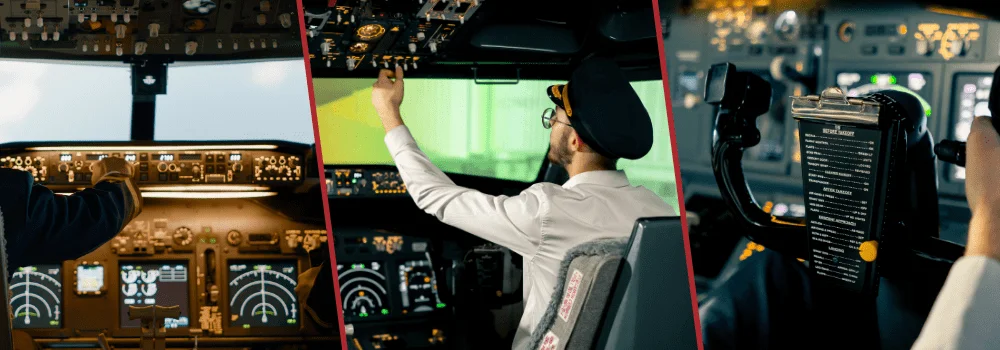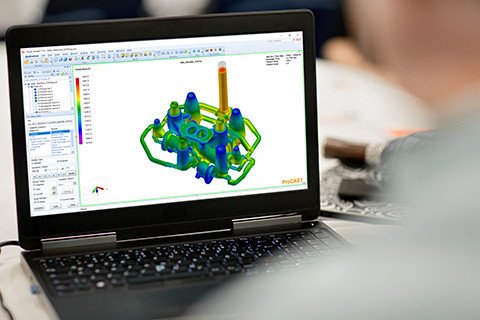Technology Skills Needed to Be an Airfield Operations Specialist

The aviation enterprise is a fast-paced, fantastically regulated subject that is based on precision, protection, and coordination. At the coronary heart of this device are Airfield Operations Specialists, professionals tasked with making sure the seamless operation of airport runways, taxiways, ramps, and related systems. In nowadays’s generation of hastily advancing technology, this position has emerge as increasingly more dependent on technical understanding. From superior communication structures to air visitors control software program, Airfield Operations Specialists should grasp a number of technical skills to excel in their roles.
This article explores the essential technology competencies required to be an Airfield Operations Specialist, highlighting how those abilities are important for the protection and performance of current airfield operations.
1. Familiarity with Airfield Management Software
Airfield Operations Specialists are answerable for tracking and coping with multiple elements of airfield functionality. This includes retaining runway repute, tracking aircraft actions, and scheduling upkeep activities. Airfield management software program, including AODB (Airport Operations Database) or specialized structures like AMOS (Aircraft Maintenance Operations System), play a important position on this process.
Key Skills:
- Proficiency in Data Entry and Analysis: Inputting and interpreting statistics for runway conditions, weather updates, and aircraft schedules.
- System Navigation: Navigating complex software interfaces to control operations efficaciously.
- Problem Solving: Using software program to troubleshoot and solve operational disruptions, inclusive of delays or device failures.
By gaining knowledge of those structures, experts can make sure that airfield operations run smoothly and follow regulatory standards.
2. Geographic Information Systems (GIS) and Mapping Tools
Airfields are sprawling complexes with complicated layouts that require constant tracking. Specialists frequently use GIS gear to research spatial statistics, map out runways and taxiways, and monitor creation initiatives. This technology enables make certain that airfield layouts are optimized for protection and efficiency.
Key Skills:
- Digital Mapping: Creating and deciphering maps of airport layouts, such as updates for brief modifications like runway closures.
- Spatial Analysis: Identifying capability dangers or inefficiencies the usage of GIS facts.
- Integration with Maintenance Systems: Linking GIS facts to preservation control systems for actual-time updates.
GIS technology facilitates Airfield Operations Specialists hold situational recognition and anticipate capability issues.
three. Proficiency in Communication Systems
Effective communication is essential in airfield operations. Specialists use advanced verbal exchange technologies, along with radio systems and virtual conversation systems, to coordinate with air traffic controllers, floor crews, and pilots.
Key Skills:
- Radio Communication: Operating VHF/UHF radios to relay records on runway situations and clearance protocols.
- Digital Platforms: Utilizing software program like ACARS (Aircraft Communications Addressing and Reporting System) for seamless communique among pilots and floor operations.
- Emergency Coordination: Using conversation structures to manipulate and respond to emergencies right away.
Strong communication skills, reinforced by means of era, are critical for preserving protection and operational efficiency in an airfield surroundings.
4. Weather Monitoring and Analysis Tools
Weather performs a considerable position in airfield operations, affecting the whole lot from flight schedules to runway usability. Specialists rely upon advanced weather monitoring systems, including AWOS (Automated Weather Observing Systems) and METAR (Meteorological Aerodrome Reports), to make informed choices.
Key Skills:
- Interpreting Weather Data: Analyzing wind speeds, visibility degrees, and precipitation using automatic structures.
- Integrating Weather Reports: Incorporating actual-time climate updates into operational planning.
- Forecasting: Anticipating weather-related disruptions and taking proactive measures, which include issuing NOTAMs (Notice to Air Missions).
Mastering climate era enables experts lessen delays and ensure passenger safety.
5. Surveillance and Security Technology
Ensuring the security of the airfield is some other crucial duty of an Airfield Operations Specialist. This includes the usage of surveillance systems, get right of entry to manipulate technology, and incorporated monitoring platforms.
Key Skills:
- Video Surveillance: Operating CCTV structures to reveal airfield perimeters and stumble on unauthorized sports.
- Access Control Systems: Managing key card structures or biometric scanners to adjust get entry to to constrained areas.
- Integration with Security Protocols: Linking surveillance information to broader security platforms for coordinated responses to threats.
With improvements in era, airfield protection has come to be extra reliant on automation and virtual equipment, making these capabilities crucial.
6. Air Traffic Control (ATC) Systems and Coordination
Although Air Traffic Controllers (ATCs) immediately manipulate the go with the flow of plane within the sky, Airfield Operations Specialists play a essential guide position via maintaining clear verbal exchange and making sure ground operations align with ATC necessities. Familiarity with systems like ADS-B (Automatic Dependent Surveillance-Broadcast) and Tower Lighting Controls is crucial.
Key Skills:
- Ground Movement Coordination: Ensuring aircraft circulate adequately between runways, taxiways, and gates.
- Lighting and Signage Systems: Operating airfield lighting systems to guide pilots at some point of takeoff, touchdown, and taxiing.
- Conflict Resolution: Identifying and resolving capacity conflicts among ground operations and air traffic.
These systems permit Airfield Operations Specialists to preserve concord among the air and ground additives of an airport.
7. Emergency Response Technology
Emergencies, along with runway incursions, plane accidents, or natural failures, require brief and powerful responses. Specialists use quite a number emergency reaction technologies to control these conditions.
Key Skills:
- Emergency Alert Systems: Operating alarm systems and sending out mass notifications all through essential events.
- Incident Management Software: Documenting incidents and coordinating responses thru structures like VEOCI (Virtual Emergency Operations Center Interface).
- Real-Time Monitoring: Using drones or mobile surveillance devices to evaluate and respond to emergency scenarios.
Emergency reaction era ensures that professionals can act hastily and decrease risks at some stage in crises.
8. Autonomous Systems and Robotics
As automation turns into more and more time-honored in aviation, Airfield Operations Specialists should adapt to new technologies including self reliant vehicles and robot systems. These innovations are used for duties like runway inspections and protection.
Key Skills:
- Operating Autonomous Vehicles: Using self-driving systems for tasks like snow elimination, grass reducing, or pavement inspection.
- Drone Technology: Employing drones for aerial inspections of runways and different infrastructure.
- Monitoring AI Systems: Overseeing AI-based tools that are expecting renovation needs or stumble on overseas item particles (FOD).
These advanced structures improve performance and decrease human workload, but they require specialists to develop new technical skills.
nine. Data Analytics and Reporting Tools
Airfield operations generate big quantities of records, from runway usage statistics to upkeep schedules. Specialists use analytics tools to interpret this facts and make informed choices.
Key Skills:
- Data Management: Using platforms like Excel or specialized aviation databases to organize and examine operational facts.
- Predictive Analytics: Anticipating traits or capability troubles using analytics gear.
- Reporting: Creating distinct reports for stakeholders, such as regulatory agencies and airport management.
Data analytics capabilities permit Airfield Operations Specialists to optimize overall performance and assist strategic decision-making.
10. Cybersecurity Awareness
With growing digitization, airfields are at risk of cyber threats. Airfield Operations Specialists ought to recognize simple cybersecurity principles to guard sensitive systems and information.
Key Skills:
- Recognizing Threats: Identifying phishing attempts, malware, or other security breaches.
- Secure Operations: Using secure protocols while accessing touchy systems.
- Incident Response: Following protocols to cope with cybersecurity incidents effectively.
Cybersecurity consciousness is crucial to safeguarding the integrity of airfield operations in a digital age.
The Path to Developing These Skills
Aspiring Airfield Operations Specialists can collect these generation competencies through a mixture of education, schooling, and on-the-process revel in. Key steps include:
- Formal Education: Pursuing ranges or certifications in aviation control, GIS, or IT.
- Hands-On Training: Gaining revel in with airfield-unique technology at some point of internships or entry-degree roles.
- Continuous Learning: Staying up to date on the modern day improvements in aviation era through workshops, webinars, and industry meetings.
Conclusion
The position of an Airfield Operations Specialist has developed significantly with improvements in era. From coping with airfield layouts the usage of GIS to coordinating emergency responses with actual-time tracking gear, generation capabilities are now crucial for ensuring safety, efficiency, and compliance in airfield operations.
For those trying to excel on this area, developing knowledge in airfield control software, communique systems, and cybersecurity can be important. By embracing technology and non-stop studying, Airfield Operations Specialists can play a pivotal function in shaping the future of aviation.





